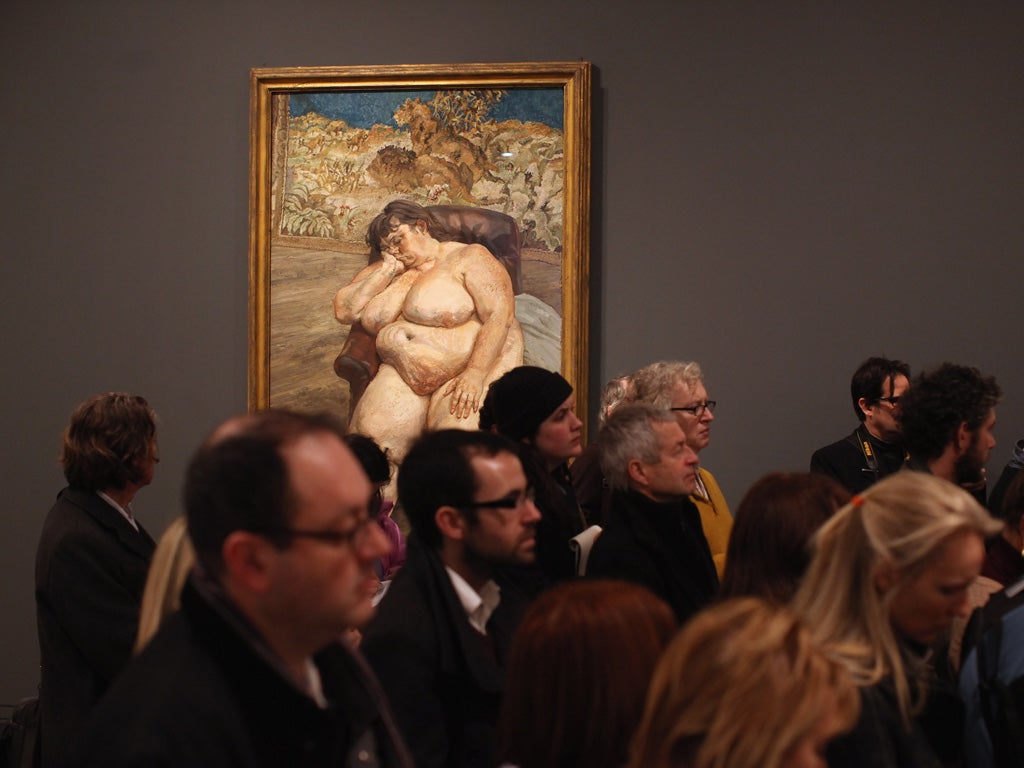Arts subsidy: Down with the capital’s cultural monopoly
Most people live outside London. But most of the art cash is spent in London. Why?

Your support helps us to tell the story
From reproductive rights to climate change to Big Tech, The Independent is on the ground when the story is developing. Whether it's investigating the financials of Elon Musk's pro-Trump PAC or producing our latest documentary, 'The A Word', which shines a light on the American women fighting for reproductive rights, we know how important it is to parse out the facts from the messaging.
At such a critical moment in US history, we need reporters on the ground. Your donation allows us to keep sending journalists to speak to both sides of the story.
The Independent is trusted by Americans across the entire political spectrum. And unlike many other quality news outlets, we choose not to lock Americans out of our reporting and analysis with paywalls. We believe quality journalism should be available to everyone, paid for by those who can afford it.
Your support makes all the difference.A new report says that there is a huge difference between what is spent on the arts in London, and on arts throughout the rest of the country. Arts organisations in the capital receive around £70 of Government funding per head, three times the amount of those elsewhere. An “imbalance” says the chairman of the Arts Council of England, Sir Peter Bazalgette. A grotesque discrepancy, I would say.
There were two great moments for regional arts. One was the heyday of the Victorian philanthropist, when captains of industry commissioned temples of culture where they themselves lived and worked. Great galleries were built across the industrial North, and crammed with masterpieces for the benefit of the people. Many still bear the names of their founders. The second, in my view, was in the 1970s, when a notion that culture should be properly devolved gave rise to new theatres and arts centres across the country.
The picture, now, is sadly diminished. Sure, the wonderful galleries across the North – in Manchester, Liverpool, Durham, Newcastle and Hull – are still there, with their treasure troves of beauty and wonder. The magnificent theatres are there, too. But too often the theatres are dark, or given over to soap stars in panto, while the galleries, limping along on local funding, are open in a sort of desultory, half-hearted manner. The National Gallery and Tate make an effort, by lending key works to regional collections or (in the case of Tate) farming out the Turner Prize. The National Theatre does go on tour. But this is simply lip service. In the main, everything, culturally, points to London. This is where great exhibitions are displayed, important plays staged, operas sung.
“Oh, but these are all streamed online, so everyone can see them,” they say. What? Have you ever had that glorious tingle provoked by the rise of a red curtain, watching a play on a computer? Yes, people could see the sell-out Leonardo exhibition at the National Gallery on television, but it simply did not compare to the experience of standing before the masterpieces. Nor do the much vaunted broadcasts of opera or theatre from the South Bank or Covent Garden. Are they a valid substitute? Not really. You need to hear the scrape of the bows on violins, see the spittle flying out of the mouths of the actors. We have the venues outside London. Take the shows there, so that people whose taxes have paid for them can see them.
There is simply no way around it. Most people in this country live outside of London. And most arts cash is spent inside London. It is unfair. And it renders it inaccessible. So what if the British Museum’s exhibition was free for children? My sister, living in Worcester, would have had to spend at least £100 on fares and tickets to bring her two children to see it. On a day trip. Stay overnight, and you are looking at a £300 bill.
The Arts Council must do better. Open up the regional galleries. Fund regional theatres. Insist on proper tours of exhibitions, plays, and operas. Our arts may well be world famous, but they are not shared, at all, between the people who pay for them.
Join our commenting forum
Join thought-provoking conversations, follow other Independent readers and see their replies
Comments